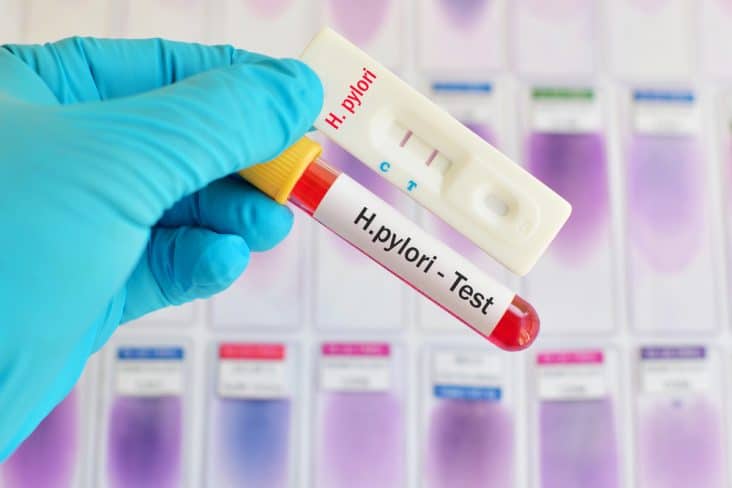Helicobacter pylori, or more commonly known as H. pylori, is a bacteria found in the human digestive tract that infects more than half of the world’s adult population.
While generally harmless, the bacteria can affect the stomach lining, which is the layer that protects the stomach from acid involved in the digestion of food. This can lead to ulcers and sores in the stomach and the small intestine.
In very rare cases, an H. pylori infection may even lead to stomach cancer.
Scientists still aren’t sure how H. pylori can infect humans. It is believed that the bacteria may spread from person to person through the mouth or by coming into contact with contaminated food or water. The bacteria may also spread if a person doesn’t follow proper toilet hygiene, through human faeces.
Understanding the symptoms and Helicobacter pylori infection treatment methods may help you manage this condition more effectively.
Symptoms of H. pylori infection
The infection itself doesn’t cause any symptoms. Most people with the infection might not even develop any symptoms at all.
When H. pylori bacteria cause ulcers in the stomach, on the other hand, patients may start to experience symptoms.
The most common symptom is a dull pain or a burning pain in the stomach, which patients may experience between meals or when the stomach is empty. The pain might ease after meals or taking antacids.
Other common symptoms you may experience as a result of ulcers caused by Helicobacter pylori infection include:
- Burping
- Bloating
- Heartburn
- Loss of appetite
- Vomiting
- Unexplained weight loss
Ulcers may also get aggravated and start to bleed into the intestines, which may be an indication that you may be suffering from a more severe health condition. Consult your doctor if you have the following symptoms.
- Unexplained tiredness
- Blood in stool
- Severe stomach pain
- Dizziness or fainting spells
- Pale skin
- Breathing difficulties
Diagnosing Helicobacter pylori infection
When you consult your doctor regarding ulcers, your doctor might ask you about your medical history and may perform a physical test by pressing your stomach to check for swelling, tenderness or pain.
The doctor may also perform the following tests to ascertain the cause of ulcers:
Blood tests: Medical practitioners check for antibodies for H. pylori in your blood.
Stool tests: Doctors use stool samples to check for signs of Helicobacter pylori infection.
Breath tests: You may be asked to swallow a preparation of urea. If H. pylori are present, it will break down the substance and release CO2.
Endoscopy: Your doctor may organise a gastroscopy/Endoscopy—a slim tube with a camera attachment will be inserted through your mouth to your stomach to check for ulcers.
Helicobacter pylori treatment
Doctors might only start treating patients if the infection leads to ulcers, which may cause you to experience some of the symptoms discussed above. Helicobacter pylori treatment also helps prevent ulcers from developing into stomach cancer.
There are two common treatment strategies for aggravated Helicobacter pylori infections.
Medication
Your doctor may treat you with a combination of antibiotic drugs and drugs that reduce the amount of acid produced in your stomach. Blocking excessive acid production may help antibiotics work more effectively against the bacteria.
Dietary recommendations
Your doctor may ask you to avoid consuming spicy food and alcohol and to stop smoking, which can worsen ulcers caused by an H. pylori infection.
Managing H. pylori infections may be the key to preventing ulcers and stomach cancer
Infections caused by the H.pylori bacteria is a common bacterial condition that affects a significant portion of the adult population around the world. Understanding the symptoms of the infection may help you prevent aggravated ulcer and stomach cancer.
Speak to a specialist today if you believe you are experiencing these symptoms.

